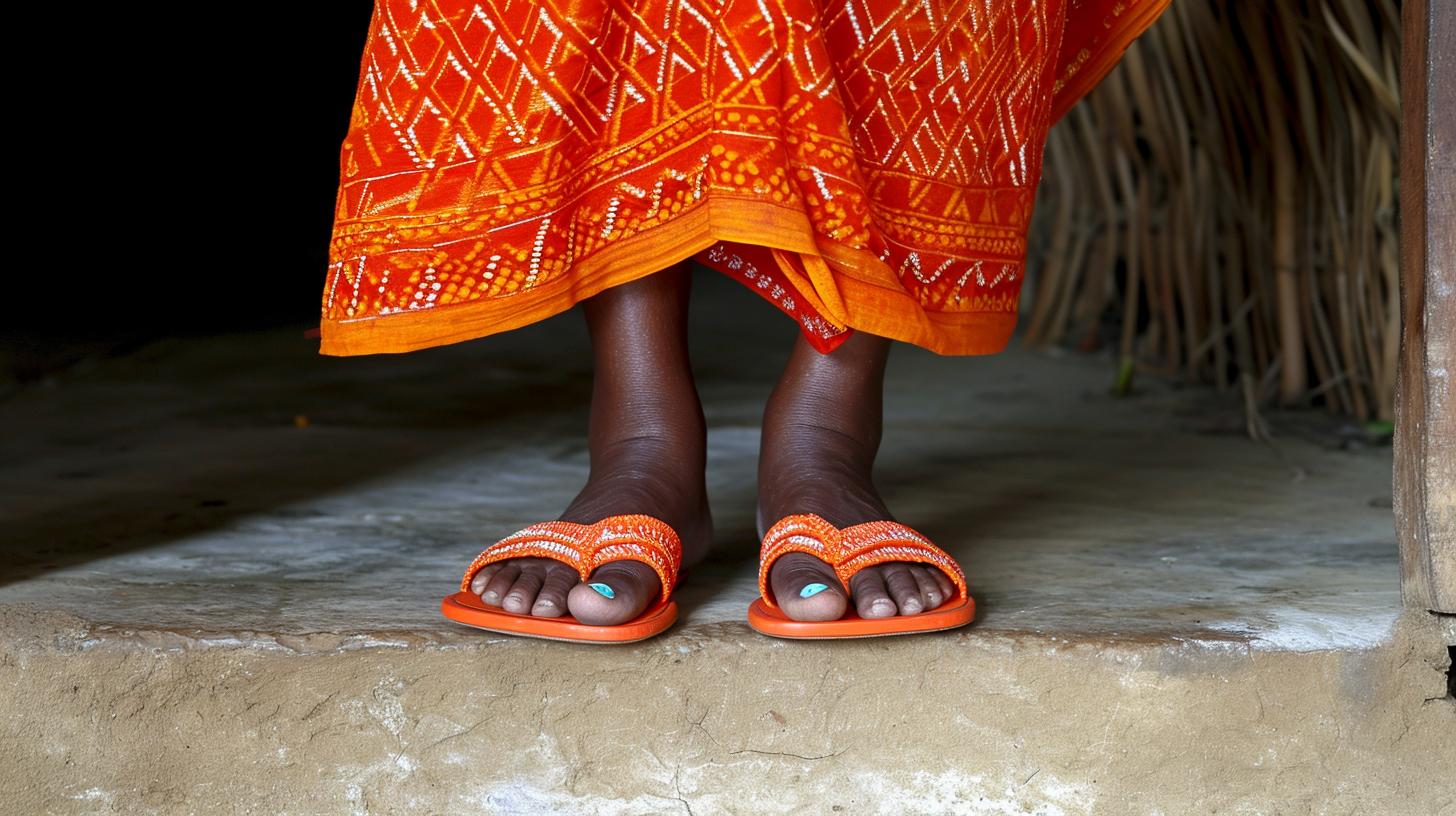
Are you aware of the impact that your footwear can have on your overall health? Often overlooked, our feet play a crucial role in our daily lives and well-being.
In this article, we will explore the significance of foot health, common foot problems, and how shoes can make a difference in supporting our feet. We will also discuss the key features to look for in health shoes, finding the right fit for your feet, and tips for maintaining and caring for your footwear.
Our feet are the foundation of our body and provide us with stability, balance, and mobility. Yet, many of us tend to neglect their importance until we experience discomfort or pain. From corns and calluses to more severe conditions like plantar fasciitis and bunions, foot problems can significantly impact our overall health and quality of life. This is where the right footwear plays a crucial role in promoting foot health and preventing these issues from arising.
When it comes to choosing the right shoes for foot health, there are several features to consider – from proper arch support to cushioning and flexibility. Understanding what to look for in health shoes can make a significant difference in preventing foot problems and ensuring overall comfort.
Additionally, finding the perfect fit for your feet is essential for optimal support and functionality. By investing in quality health shoes and taking good care of them, you can embrace foot health through the right footwear.
Stay tuned as we delve deeper into understanding the importance of foot health, identifying common foot problems, and discovering how you can benefit from investing in quality health shoes. Whether you’re an athlete seeking performance-enhancing footwear or someone looking for everyday comfort, this article will provide valuable insights into prioritizing your foot’s well-being through proper footwear choices.
Common Foot Problems and Their Impact on Overall Health
Impact of Foot Problems
In today’s fast-paced world, foot problems are often overlooked or ignored. However, the impact of untreated foot issues can be severe and affect overall health. Chronic foot pain, bunions, corns, and calluses can lead to discomfort and even difficulty in walking. Left unaddressed, these issues can contribute to poor posture, back pain, and a decreased quality of life.
Connection With Overall Health
It is crucial to understand that foot health is directly linked to overall well-being. Ignoring common foot problems can lead to more serious conditions such as plantar fasciitis, arthritis, and even diabetes-related complications. These conditions can significantly impact mobility and daily activities, affecting not only physical health but also mental and emotional well-being.
The Importance of Proper Footwear
One of the key factors in preventing and addressing common foot problems is wearing appropriate footwear. Health shoes play a vital role in providing support, cushioning, and stability for the feet. They can help alleviate or prevent various foot issues by promoting proper alignment and reducing pressure on specific areas of the feet. By understanding the impact of foot problems on overall health, individuals can make informed choices about the type of shoes they wear to support their foot health.
The Role of Shoes in Supporting Foot Health
When it comes to overall health and wellness, the importance of foot health is often overlooked. Our feet carry the weight of our bodies every day, and they play a crucial role in our mobility and stability. Wearing the right shoes is essential in supporting foot health and preventing various foot problems that can impact our overall well-being.
Proper footwear not only provides comfort and support for our feet but also helps maintain proper alignment and posture. Health shoes are specifically designed to promote foot health by providing cushioning, arch support, and stability. They are constructed with high-quality materials that offer breathability, flexibility, and durability, all of which are essential for maintaining healthy feet.
When choosing health shoes, it’s important to consider features such as proper arch support, a wide toe box to accommodate natural foot shape and movement, shock absorption to reduce impact on the feet and joints, and a supportive heel counter to help maintain stability. These features help distribute body weight evenly across the feet, reducing pressure points and minimizing the risk of developing foot problems.
Investing in quality health shoes is an investment in overall well-being. By prioritizing foot health through proper footwear, individuals can experience improved comfort, reduced pain or discomfort in their feet, ankles, or knees due to improper shoe choices, enhanced mobility and balance, and a reduced risk of developing long-term foot conditions.
When it comes to maintaining an active lifestyle or simply going about daily activities comfortably, having the right pair of health shoes makes a significant difference in promoting optimal foot health.
| Benefits of Health Shoes | Impact on Overall Health |
|---|---|
| Improved comfort | Reduced risk of foot problems |
| Enhanced mobility | Better posture and alignment |
| Reduced pain or discomfort | Minimized risk of long-term foot conditions |
Features to Look for in Health Shoes
When it comes to choosing the right health shoes, there are a few key features to look for that can make a significant difference in supporting foot health. Here are some important features to consider when shopping for health shoes:
- Proper Arch Support: Look for shoes with built-in arch support to help distribute weight evenly and reduce strain on the feet and ankles.
- Shock Absorption: Quality health shoes should have cushioning and shock-absorbing materials in the sole to minimize impact on the feet, especially during high-impact activities.
- Wide Toe Box: Opt for shoes with a wide and roomy toe box to allow for natural toe splay and prevent conditions like bunions or hammertoes.
- Breathable Materials: Choose health shoes made from breathable materials like leather or mesh to promote airflow and reduce moisture, which can lead to fungal infections.
- Adjustable Straps or Laces: Having adjustable straps or laces can ensure a snug and customized fit, while also accommodating any foot swelling throughout the day.
In addition to these features, it’s important to consider the specific needs of your feet. For example, individuals with flat feet may require motion control shoes, while those with high arches may benefit from cushioned footwear. It’s always best to consult with a podiatrist or shoe fitting expert if you have any specific concerns about your foot type.

By prioritizing these features when selecting health shoes, individuals can proactively support their foot health and potentially prevent common foot problems associated with poor shoe choices.
Finally, investing in high-quality health shoes that prioritize these key features can be an integral part of maintaining overall foot health. While they may come at a higher price point than standard footwear, the benefits of comfort, support, and injury prevention make them well worth it in the long run.
How to Find the Right Fit for Your Feet
When it comes to finding the right fit for your feet, especially when it comes to health shoes, there are a few important factors to consider. The fit of your shoes can greatly impact both your foot health and overall comfort, so it’s crucial to take the time to find the perfect pair.
Proper Sizing
One of the most important aspects of finding the right fit for your feet is ensuring that you have the proper shoe size. Many people are actually wearing the wrong size shoe, which can lead to a host of foot problems. It’s recommended to have your feet measured professionally at a shoe store, as foot size can change over time. Additionally, be mindful of any differences in sizing between brands, as they may vary.
Toe Room and Wiggle Space
Another factor to consider when finding the right fit for your feet is toe room. Your toes should have enough space to wiggle comfortably inside the shoe without feeling cramped or squished. This can help prevent issues such as ingrown toenails and blisters. Look for shoes with a wide toe box to give your toes plenty of room.
Arch Support and Stability
For those looking for health shoes specifically designed for foot health, it’s important to consider arch support and stability. Look for shoes that offer adequate arch support, especially if you have high arches or flat feet. Shoes with good stability features, such as a firm heel counter and solid midsole, can also help improve overall foot support and alignment.

Remember that everyone’s feet are different, so what works well for one person may not work for another. When trying on potential health shoes, pay attention to how they feel on your feet and make sure they provide the necessary support.
Tips for Maintaining and Caring for Your Health Shoes
Caring for your health shoes is essential to ensure that they continue to provide the necessary support and comfort for your feet. Here are some tips for maintaining and caring for your health shoes:
1. Keep them clean: Regularly clean your health shoes to prevent the build-up of dirt, bacteria, and odor. Use a gentle cleanser or shoe-specific cleaning products to avoid damaging the material.
2. Air them out: After wearing your health shoes, allow them to air out and dry completely before wearing them again. This helps prevent the growth of odor-causing bacteria and fungi.
3. Store them properly: When not in use, store your health shoes in a well-ventilated area away from direct sunlight and moisture. Proper storage helps maintain the integrity of the materials and prevents deformities.
4. Replace worn-out insoles: Over time, the insoles of your health shoes may wear out, losing their cushioning and support. Replace them with high-quality orthotic insoles to maintain proper foot alignment and comfort.
5. Check for wear and tear: Periodically inspect your health shoes for any signs of wear and tear such as fraying stitching or worn-out soles. Addressing these issues promptly can help prolong the lifespan of your shoes.
6. Avoid exposing them to extreme conditions: Health shoes should be protected from extreme heat, cold, and moisture, as these can damage the materials and affect their performance.
By following these tips for maintaining and caring for your health shoes, you can ensure that they continue to provide optimal support and comfort for your feet, promoting overall foot health.
The Benefits of Investing in Quality Health Shoes
Investing in quality health shoes can have a significant impact on your overall well-being. These specially designed shoes are not only comfortable, but they also provide the necessary support and protection for your feet. By choosing the right health shoes, you can prevent various foot problems and improve your posture, ultimately leading to better overall health.
One of the key benefits of investing in quality health shoes is the reduction of foot pain. Whether you suffer from plantar fasciitis, bunions, or flat feet, wearing properly fitted health shoes can alleviate discomfort and minimize the impact of these conditions on your daily activities. Additionally, health shoes with adequate arch support can help distribute body weight more evenly, reducing strain on the feet and lower limbs.
Furthermore, quality health shoes can contribute to better posture and alignment. When our feet are properly supported, it has a positive ripple effect throughout our entire body. This means that investing in the right health shoes can potentially prevent back pain, knee pain, and other musculoskeletal issues associated with poor foot support.
Investing in quality health shoes is an investment in your overall well-being. By choosing footwear that prioritizes comfort, support, and proper fit, you can avoid common foot problems and enjoy better posture and alignment for years to come.
| Benefits of Quality Health Shoes | Impact |
|---|---|
| Reduction of foot pain | Alleviates discomfort from various conditions |
| Improved posture and alignment | Prevents back pain and musculoskeletal issues |
Conclusion
In conclusion, prioritizing foot health by choosing the right footwear is essential for overall well-being. The importance of foot health cannot be overstated, as it directly impacts our mobility and comfort in daily activities. By understanding common foot problems and their impact on our overall health, we can make informed decisions when selecting shoes that provide proper support and protection.
Finding the right health shoes involves considering important features such as arch support, cushioning, and a proper fit to accommodate any specific foot conditions or needs. Investing in quality health shoes not only ensures comfort but also prevents potential foot issues from arising or worsening over time. By maintaining and caring for our health shoes properly, we can prolong their lifespan and continue to enjoy the benefits they offer.
Ultimately, embracing foot health through the right footwear is a proactive step towards maintaining a healthy lifestyle. By prioritizing our feet’s well-being, we can better support our overall physical health and enhance our quality of life. Therefore, taking the time to find the best health shoes for our individual needs is a worthwhile investment in our long-term comfort and mobility.






